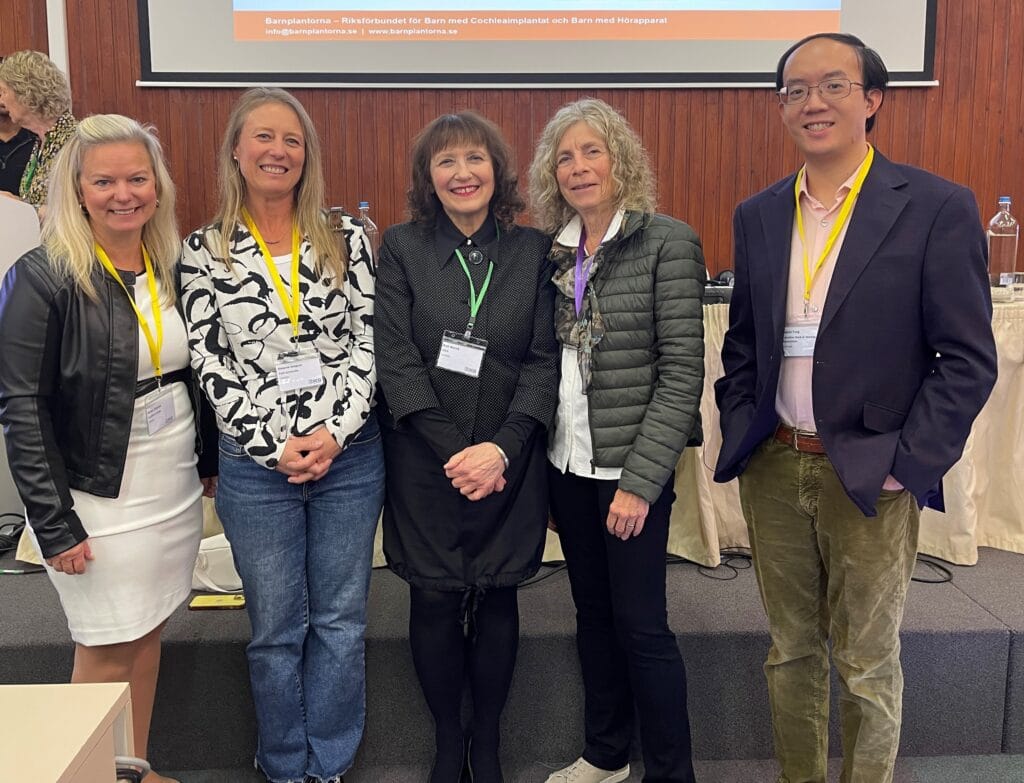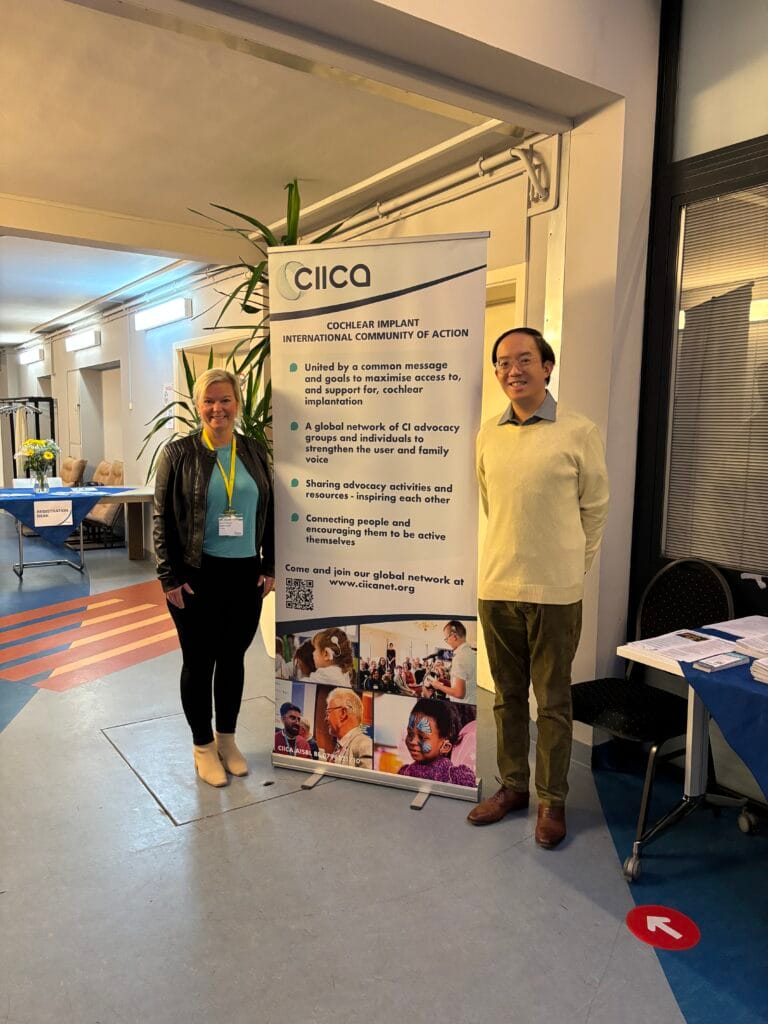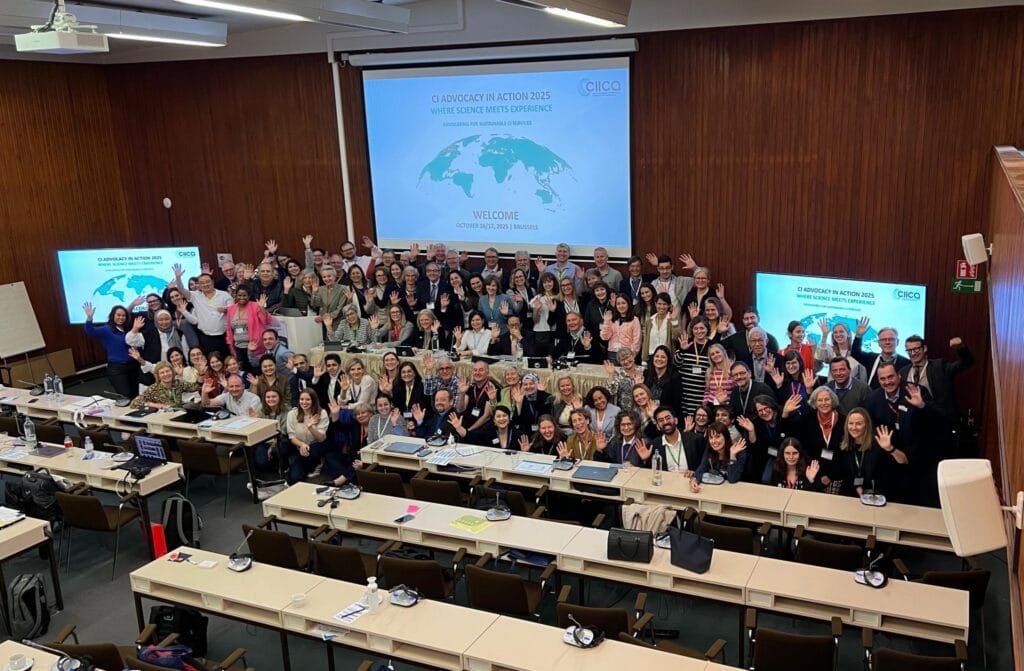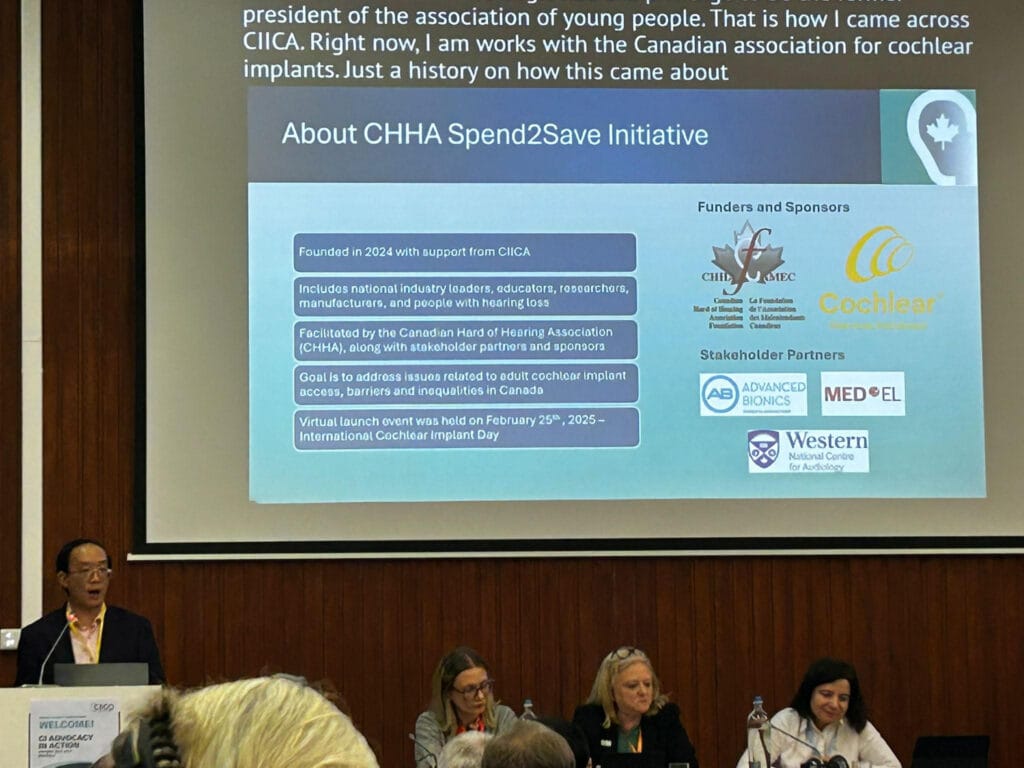The Cochlear Implant International Community of Action (CIICA) brought together an inspiring mix of cochlear implant (CI) users, families, clinicians, researchers, industry partners, and policymakers for its global conference, CI Advocacy in Action 2025, held in Brussels on 16–17 October.
Over two days, 120 delegates from 32 countries met under the theme “Where Science Meets Experience.” What emerged was a powerful sense of purpose: that advocacy for cochlear implants must evolve from passion to strategy, from isolated efforts to a global movement.
Unlike many clinical conferences, CIICA’s event placed lived experience at the heart of every discussion. CI users and families shared the stage with audiologists, researchers, and policymakers, underscoring the tagline: “Where Science Meets Experience. The mix of personal stories and technical expertise created a uniquely collaborative environment—where data met human reality.
Key Themes and Messages
1. Access, Equity, and Sustainability
Participants repeatedly returned to one urgent message: access to cochlear implants must be equitable and sustainable. Advocacy cannot stop at surgery—it must extend to rehabilitation, follow-up care, and lifelong hearing support.
Speakers from low- and middle-resource countries shared creative approaches to service delivery, while others highlighted the growing needs of older adults receiving implants—the fastest-growing CI user group.
2. From Passion to Planning
As Professor Sara Rubinelli reminded delegates: “Having great ideas, powerful personal stories, and a burning passion for a cause are essential elements of advocacy—but they are not enough on their own.” Advocacy, she argued, requires structure: strategy, shared messaging, and evidence. The challenge is not just to raise voices but to align them.
3. The Power of Evidence and Storytelling
Delegates agreed that the strongest advocacy blends hard data with human narrative. Cost-benefit evidence and hearing-health statistics persuade policymakers, but personal stories make the issue real. When used together, they form the backbone of effective campaigns.
Action Plan for Advocates
The conference concluded with a clear roadmap for anyone wishing to drive CI advocacy forward:
1. Define your purpose. Identify your group’s role and the change you want to achieve.
2. Map your stakeholders. Understand who supports your goals and who influences decision-making.
3. Create one shared message. Consistency amplifies impact.
4. Use data and stories together. Combine statistics with lived experiences for credibility and connection.
5. Build coalitions. Bring together users, professionals, and policymakers.
6. Adapt locally. Each region needs its own strategy suited to its healthcare system.
7. Engage funders and decision-makers. Be specific about what you’re asking for.
8. Plan for sustainability. Advocacy should focus on lifelong services, not just access to devices.
9. Measure and refine. Track progress and adjust tactics over time.
10. Share your learnings. Contribute to the global CIICA network to inspire others.
—
National Report Card to Influence Public Coverage Policy
Bowen Tang, a member of the Spend2Save Initiative, represented CHHA, to present the current work of developing a national report card to address disparities in access to adult cochlear implant care across Canada. The report card will identify the gaps in 5 key areas:
1. Wait time from initial referral to surgery
2. Post-operative rehabilitative care
3. Geographical barriers for access to care (rural vs. urban)
4. Financial assistance for device maintenance and upgrades
5. Access to multidisciplinary care such as social worker, speech-language pathologist
The presentation received positive responses with some attendees commenting that they’d like to implement this model for their countries as well.
By the end of CI Advocacy in Action 2025, the atmosphere was one of optimism and shared responsibility. Delegates left Brussels with fresh energy—and a clearer sense of direction.
The key lesson? Advocacy is most powerful when it is collective, evidence-based, and grounded in lived experience. Access to cochlear implants must not depend on geography or age, and services must be built for a lifetime, not a moment.
As one conference participant put it: “Advocacy should not only call for access—it should call for lifelong hearing.”








